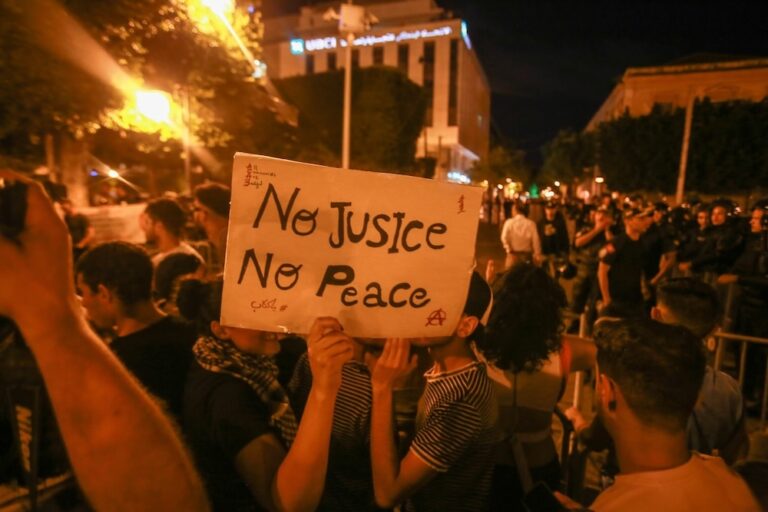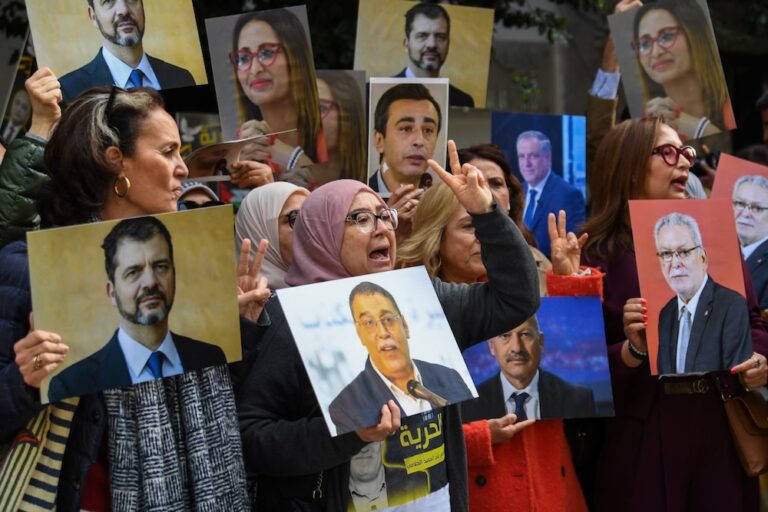Union president Neji Beghori was barred from entering the offices, assaulted and dragged away by police.
(IFJ/IFEX) – 8 September 2009 – The International Federation of Journalists (IFJ) today protested to the Tunisian government over the actions of police who laid siege to the offices of the Tunisian Syndicate of Journalists and assaulted the union’s President after he tried to enter the building.
“This is heavy-handed and violent interference in journalism,” said Aidan White, IFJ General Secretary. “It is unacceptable and demonstrates the intolerance of a regime which puts power politics before democracy.”
According to reports from the Syndicat National des Journalistes Tunisiens (SNJT), the union president, Neji Beghori, was today barred from entering the offices, assaulted and dragged away by police. The offices were surrounded by more than 100 policemen after a Tunisian Court ordered the officers of the union to hand over the keys to the building.
The SNJT has been split following an internal dispute which has focused on the union leadership’s uncompromising demands for independence and their unwillingness to publicly endorse President Ben Ali in national elections next month. A rival faction organised an extraordinary congress last month and elected new leaders, the majority of them strong supporters of the ruling RDC party. They also sent a message of support to the President.
This congress was widely condemned by national and international human rights groups as politically motivated.
SNJT leaders, who had failed to win a court order against the rival congress, planned their own meeting to be held this week, but the IFJ warns that such a meeting will be compromised if there is a threat of official violence.
“We are increasingly concerned about this threatening atmosphere and we call on the authorities to offer guarantees that the meeting will be allowed to proceed,” said White.
“The IFJ has consistently appealed for peaceful and democratic solutions to the problems of Tunisian journalism,” said White. “Normally, court orders are enforced in a non-violent manner, but the authorities are determined to make a show of their authority and in the process to teach independent journalists a lesson.”
The IFJ says that it will support fresh efforts to end the damaging rift that has divided journalists. The IFJ Executive Committee will meet in November to decide how to further support colleagues in Tunisia.
“Political interference in the heat of a Presidential election is not uncommon,” said White, “but in Tunisia the impact can be damaging and long term. We need all journalists to focus on professional solidarity not party preference.”


